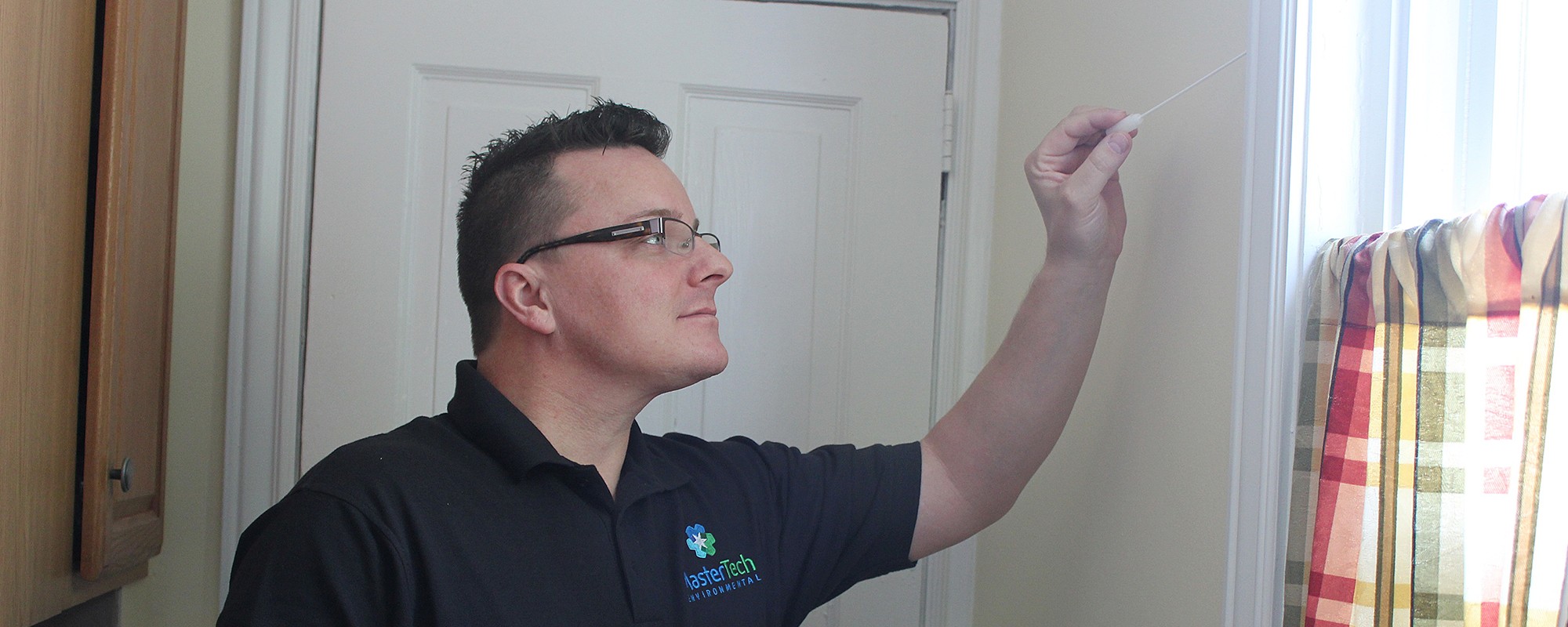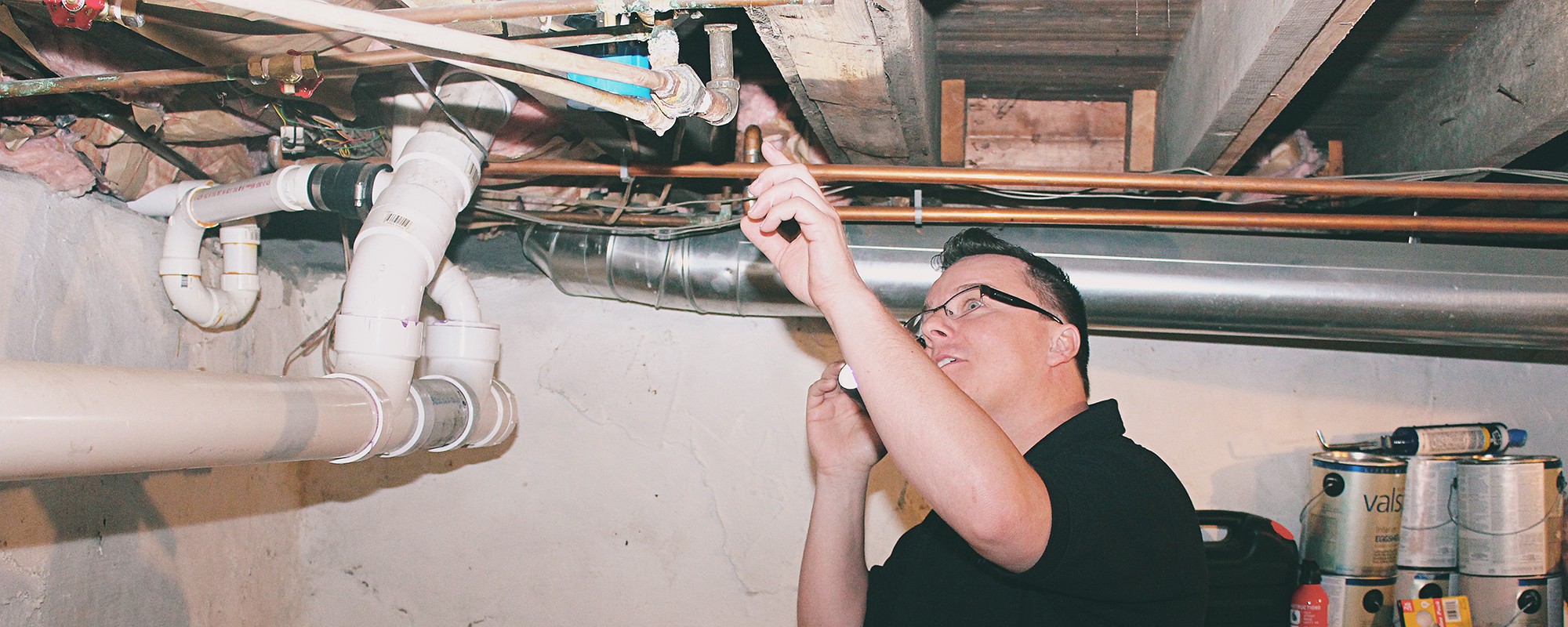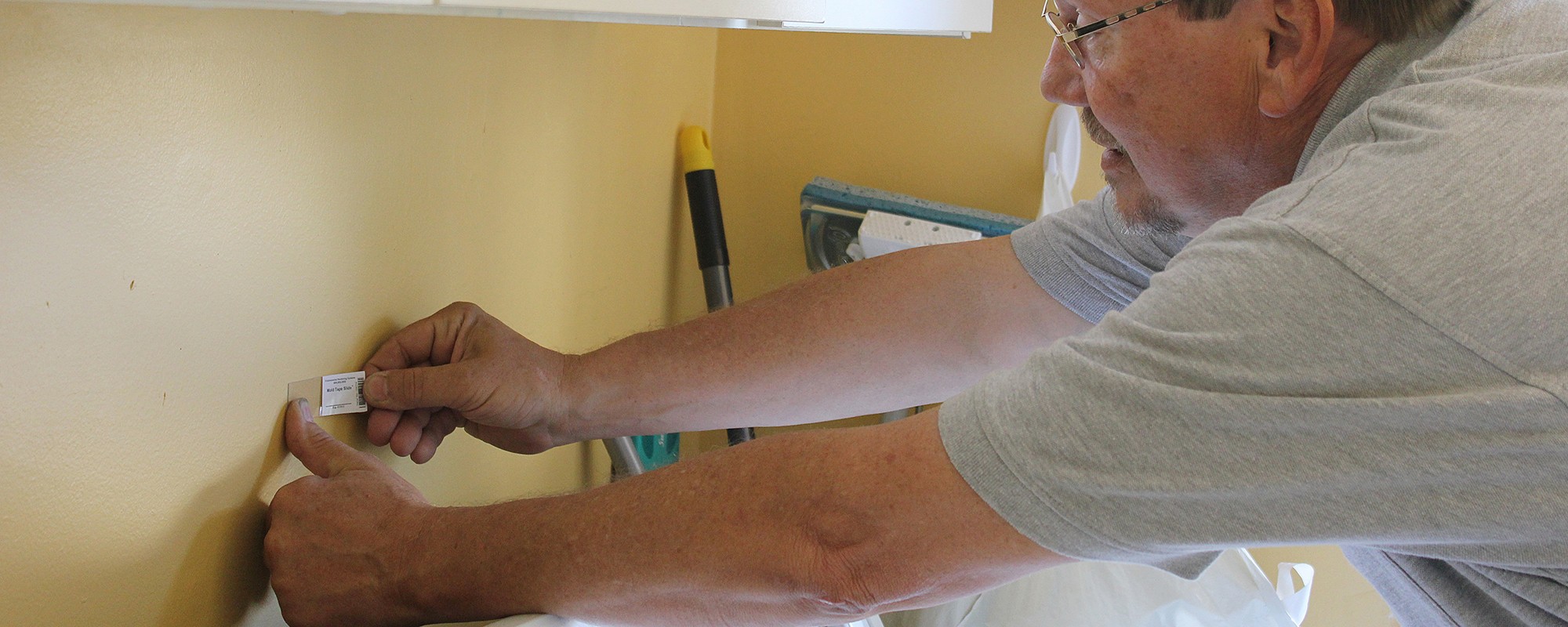One of the most common contaminants secretly developing in homes throughout the New Jersey area is mold. Mold can grow indoors on wet or damp surfaces, such as wallpaper, ceiling tiles, carpets, insulation material, wood and drywall. In the presence of moisture, it only takes 24-48 hours for mold to begin to develop. If left unchecked, mold can spread and seriously impact both your quality of life and your home’s physical structure. If you suspect that mold has contaminated your South Jersey home, you should contact a certified mold inspector in New Jersey who will have the necessary mold detection training and tools to determine whether or not a mold problem exists and reveal the full extent of the problem.
If you are concerned about a potential mold problem in your NJ home, a professional mold inspector in South Jersey can help by doing the following:
- Confirm whether mold is present or not
- Determine the severity of the mold problem
- Identify what caused the mold in the first place
- Prescribe a safe and effective mold remediation plan
- Diagnose the moisture source and provide solutions for mold prevention
There are a great deal of benefits to gain from a NJ mold inspection. The most important benefit of having your South Jersey home inspected for mold is early mold detection. Homeowners, who are fortunate enough to catch a mold problem early on, will have the opportunity to address the mold before it gets worse and spreads into a widespread contamination.
Mold Detection Services in South Jersey
Don’t let your home and family’s health be ruined with mold! Mold is present everywhere in nature, but when it finds its way into your NJ home it can be a major problem. Professional mold inspectors have the necessary mold detection tools and training to detect potential mold growth in your New Jersey property.
Visual Inspection- A thorough visual assessment can reveal a great deal of information regarding the space. An inspector can identify physical signs of mold growth, like musty odors and visual indicators of mold. During the visual assessment, your mold inspector will also look for conditions that could be allowing for and sustaining mold growth.
Moisture Mapping- Moisture detection is an important step to understanding the full extent of a potential mold problem. In order to properly address the mold, we must also address the moisture source that caused the mold in the first place. Moisture mapping means using tools to isolate all damp or wet building materials that could be supporting mold growth. Understanding moisture patterns helps to determine where the moisture starts and stops, and it also helps in identifying if any leaks are activity leaking at the time of inspection.
- Thermal Imaging Cameras: Thermal imaging cameras (or infrared cameras) allow mold inspectors to detect temperature differences in (and often behind) building materials. Damp or wet building materials are almost always cooler than dry materials. This information helps the inspector map out all damp areas that could support mold growth. It’s an invaluable tool in the detection of moisture sources that cause mold growth.
- Moisture Meters: Moisture meters are used to measure the moisture content within porous building materials throughout your South Jersey property. Moisture can buildup in porous building materials over time and can be easily missed by NJ homeowners. Even if the materials are dry to the touch, there could still be significant moisture locked within its pores that could support mold growth.
Air and/or Surface Testing- With the information gathering during the visual assessment and moisture mapping, your mold inspector will be able to determine if testing will be necessary for additional lab analysis. Mold testing can detect how much mold is present and what species of mold are present.
- Air Sampling: Airborne mold spores are not visible to the naked eye. In cases where there is a concern for hidden mold growth, air samples can be collected for additional analysis. Air samples will provide information about indoor mold spore levels and will help the mold inspector determine if indoor spore counts in the air are with normal ranges or not.
- Surface Sampling: In some situations, it may be difficult to visually differentiate between mold and some other substance. Is it just water staining, or is it mold? Surface testing with mold swabs or bio tape lifts will answer those questions. In many cases, surface testing isn’t necessary if mold growth is visibly obvious.
- Inner Wall Void Sampling: When mold is suspected behind a wall or above a ceiling, those areas should be tested. Today’s mold testing technologies and techniques allow mold inspectors to take air and surface samples from wall or ceiling voids without causing unnecessary damage to the property.
If your mold inspector detects a mold problem, your inspector will use the information gathered on site to develop a safe and effect mold remediation strategy for your NJ home. Each mold remediation scope of work will include cleanup procedures as well as preventative measures that are necessary to keep mold from returning.
Dangers of Unaddressed Indoor Mold Growth New Jersey
Mold can mean health implications and serious property damage. A mold inspection can detect a mold problem early on and give you the opportunity to address it before it does too much damage.
When it comes to mold, time is a South Jersey homeowner’s worse enemy. As long as the moisture source still exists, the mold will only spread and worsen with time. Indoor mold growth can make you and your family sick. Certain types of mold have the potential to produce mycotoxins, which are toxic to humans. The effects of mold exposure can vary from minor allergies to severe upper respiratory problems.
Aside from the potential health implications, mold can also cause great physical damage to the structure of your NJ home and diminish your property value. It is indisputable that excessive mold growth can leave a NJ home or business with significant, widespread property damage if that mold problem is not properly addressed early on. Mold damage to building materials throughout your New Jersey home or business will diminish structural integrity and reduce your property value. In order to avoid such damage, early mold detection is key.





